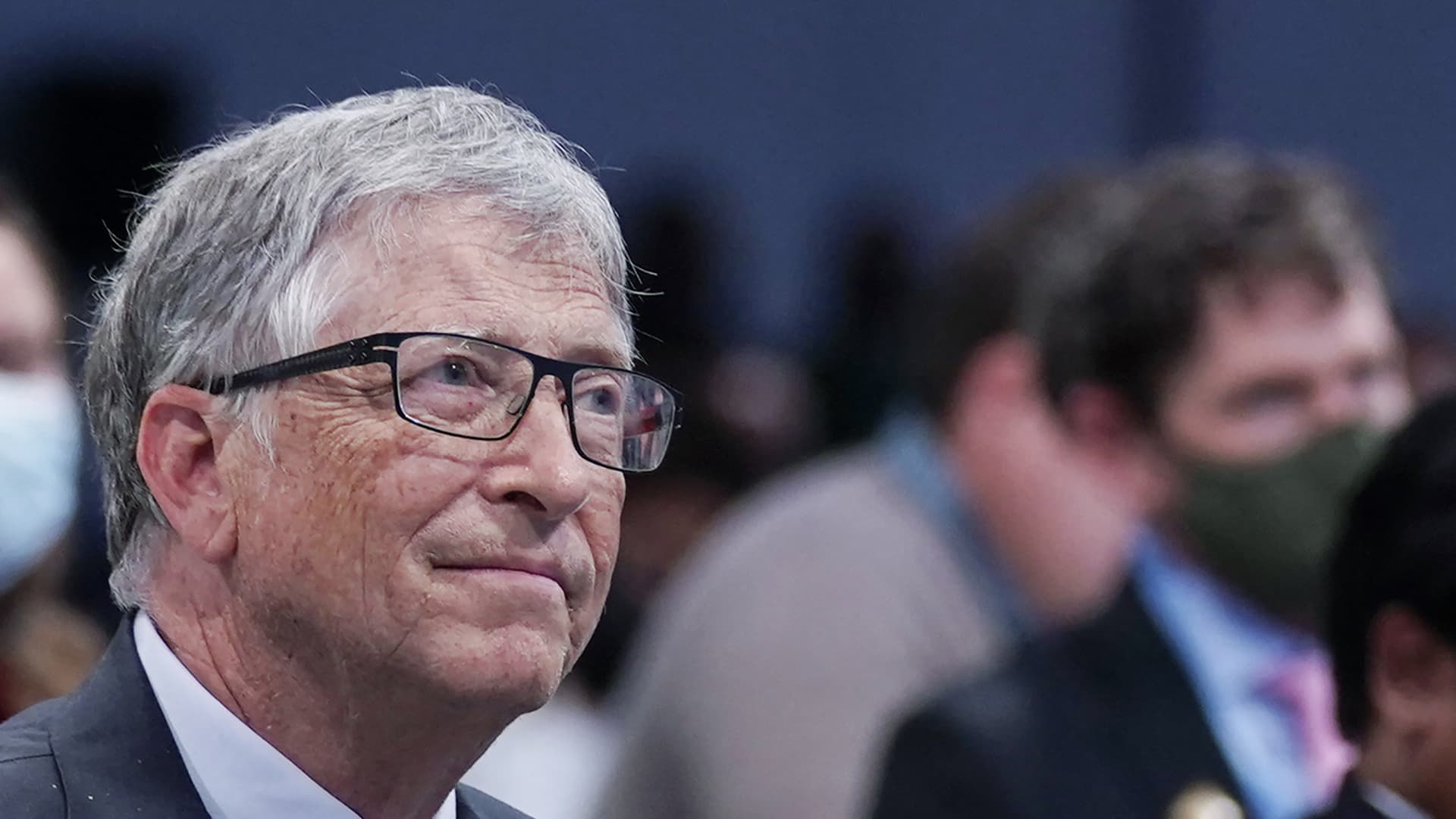Bill Gates spends a lot of his time sounding the alarm over existential global threats, like climate change and future pandemics.
Yet the billionaire Microsoft co-founder and philanthropist says he’s still “very optimistic” about humanity’s future on Earth. Even with challenges facing current and future generations, Gates says anyone born in the next few decades will be better off than people born at any previous point in history.
“I’m still very optimistic that it’d be much better to be born 20 years from now, 40 years from now, 60 years from now than any time in the past,” Gates said Monday in an interview at the Lowy Institute, a think tank in Sydney, Australia.
The world is full of disheartening trends, Gates noted — like an inadequate global response to the Covid-19 pandemic, governments’ failures to meet stated goals for tackling climate change and increased political polarization in the U.S.
In October, a Gallup poll found that only 42% of Americans believe today’s youth will have “a better living standard” than their parents. That number is 18 percentage points lower than in 2019 and tied for the lowest level of optimism in roughly three decades based on similar polls in the past, according to Gallup.
But pessimists miss the full picture, Gates said: “It’s easy to get a more negative view of some of these trends than is really fair, in my view.”
Gates pointed to advances in public health, noting that global mortality rates for children under the age of five have been cut in half over the past two decades.
“The amount of innovation that is [for] the improvement overall in the human condition is still going to be dramatic. We will cure obesity, we will cure cancer, we will eradicate polio,” Gates said.
Gates has also praised the potential for cheap and effective green energy technology in recent years, and technological advances enabling education and health workers to have greater reach across the world.
“The amount of IQ in the world that’s being educated, the quality of the tools we have to drive forward our innovation, whether it’s in health or energy or education, those are fantastic things,” Gates said Monday.
Looking further back into history, it’s clear that things are only continuing to get better, he added.
“Zoom out and say ‘OK, where were we 300 years ago?'” Gates asked, noting that the average lifespan for human beings has vastly improved over the past three centuries. In 1700, the average person died before reaching age 40. Today’s life expectancy in the U.S. is 76.1 years.
“It didn’t matter if you were a king or a pauper, you were subject to huge infant mortality and extremely low levels of literacy,” Gates said. “So, the scope of human innovation over time … is a phenomenal story.”
Gates’ comments echo a similar sentiment expressed last year by fellow billionaire Charlie Munger, who lamented what he saw as people being less happy today than they were in more difficult times.
“Everybody’s five times better off than they used to be,” Munger argued.
Innovation isn’t guaranteed to have positive outcomes, Gates noted: Technological and scientific evolution can result in dangerous advances, like nuclear weapons or bioterrorism.
“Modernity comes with some risks, as well,” he said. “But, overall, I’m incredibly optimistic.”
Sign up now: Get smarter about your money and career with our weekly newsletter
Don’t miss:
Bill Gates’s goal to ensure ‘that Covid-19 is the last pandemic’
